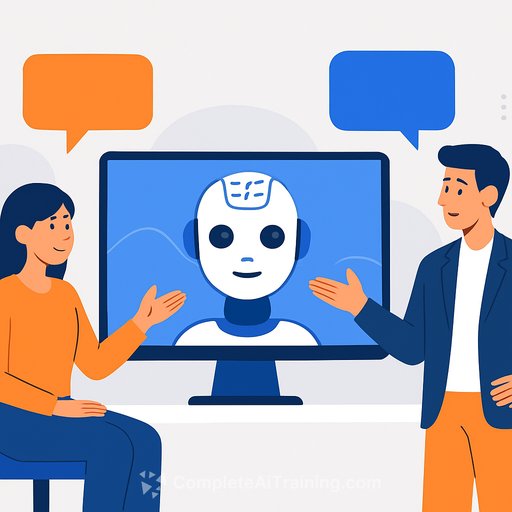AI Sales Avatars That Make Practice Feel Real
Picture a prospect in business formal, opening a call with small talk and a sharp boundary: "Don't waste my time with fluff." That's the tone inside Assistant Professor of Marketing Rhett Epler's professional selling courses, where students practice with an AI-powered client via Copient.AI.
The twist: the "client" isn't human. But the pressure, the pace, and the stakes feel close to it. The result is reps who build skills faster with less risk.
Why this works
- Adaptive conversations: The AI adjusts to the student's performance. If you meander, it gets impatient. If you lead, it opens up.
- No scripts: Students must listen, probe, and pivot in real time - the same muscles you need in a live deal.
- Fast feedback loops: After each call, a rubric scores dozens of elements - rapport, discovery depth, transitions, clarity, and close. You see exactly where you lost ground.
- Scalable practice: It breaks the "role-play bottleneck." Instead of waiting your turn, you can run multiple reps in a single session.
Real outcomes, quickly
Old Dominion University is among the first 15 universities to roll out this approach. Students see meaningful score improvements in just six to seven AI interactions. That's not theoretical - it's measurable.
The scoring is unforgiving in a good way. In one demo, points were docked because the rep didn't mention the company they represent. Small misses matter. The software surfaces them instantly.
What this means for sales teams
- Train for the moment, not the meeting: Replace static role-plays with adaptive scenarios that push reps to listen and respond.
- Make feedback objective: Use rubrics that quantify the fundamentals - agenda setting, question quality, problem framing, value alignment, next steps.
- Increase reps per rep: Aim for 5-10 short simulations per week. Short, frequent practice beats occasional long sessions.
- Coach to one variable at a time: First week, focus on discovery. Next, on transitions. Then, on multi-threading. Stack the wins.
Student proof
Maliyah Terry, a senior studying business analytics and real estate, put it simply: "It allowed us to freely practice real sales conversations without the need of someone else to play the customer. It is much more efficient, and it also allows us to practice with different difficulty levels of customers, simulating real-life scenarios."
How to try this
- Explore AI role-play tools like Copient.AI for adaptive sales conversations.
- If you're building a broader AI upskilling plan for your org, browse practical options by job role here: Complete AI Training - Courses by Job.
Epler is clear about the goal: "It doesn't replace teaching. It augments it. We are taking the tension out of a sales interaction and allowing students to get comfortable with what it feels like." That comfort is the point - so the first real call doesn't feel like the first real call.
Your membership also unlocks:






